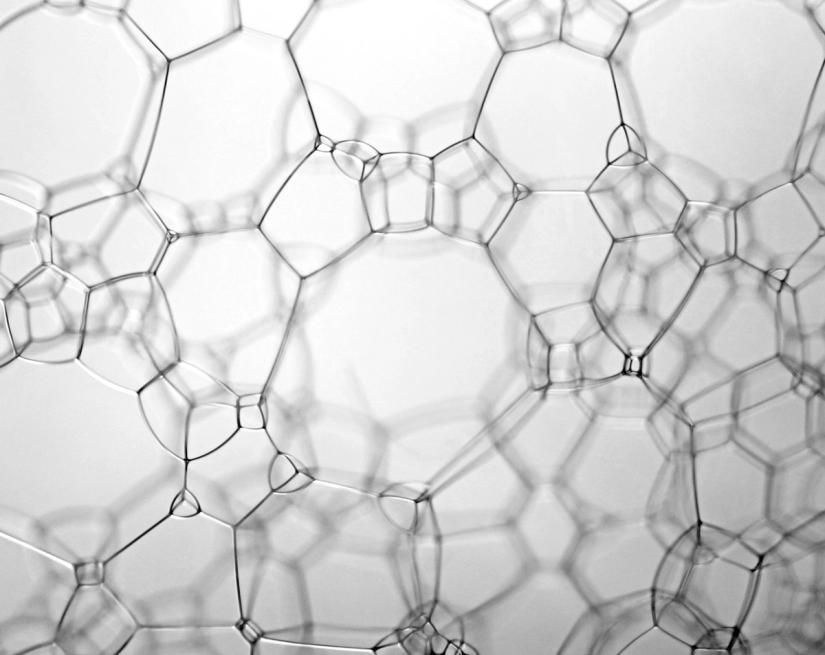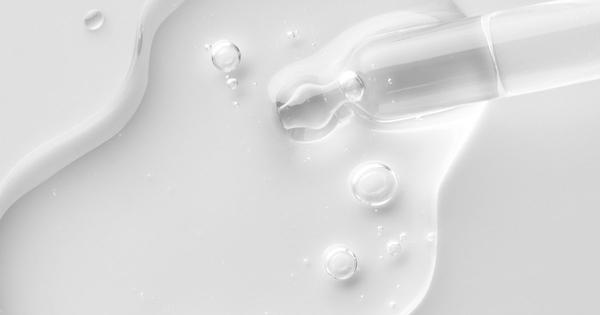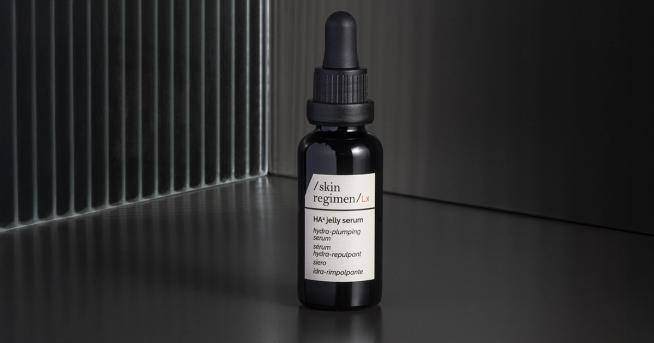Skin Regimen Lx Ha4 Jelly Serum
Hydra-plumping serum
skin care
Eve Mérinville | Corporate RD Excellence & SC RD and Innovation Director
10 min read

The short answer is: not directly. While hyaluronic acid is not designed to treat acne symptoms, it can help repair and restore skin that has been affected by acne. It deeply moisturizes without clogging pores, helps keep sebum production under control, and strengthens the skin barrier, which is often already weakened by overly aggressive treatments. When it is part of a balanced skincare routine that includes gentle cleansing, moisturizing products, and proper sun protection, hyaluronic acid can be an important ingredient for replenishing acne-prone skin.
Hyaluronic acid is naturally present in our body, with a particularly high concentration in the joints, eyes, and skin. This molecule has a superpower: it can retain up to 1,500 times its weight in water! It is precisely this ability to retain and attract water in the skin that makes hyaluronic acid a valuable ingredient for preserving the hydration of the entire skin tissue. While hyaluronic acid doesn’t directly treat acne, it supports a healthy skin barrier by keeping skin hydrated, balanced, and smooth without weighing down the skin, clogging pores, or triggering unwanted reactions.
When analyzing healthy skin, four fundamental qualities define it:
Acne-prone and stressed skin often loses hydration over time, which in turn decreases the other qualities of the skin. Hyaluronic acid is a powerful ingredient that helps preserve hydration along with tone, radiance, and elasticity.
Different forms have different purposes:
At Comfort Zone we formulate our products intentionally, carefully balancing different amounts of hyaluronic acid to target a variety of skin needs. We combine these formulations with synergistic ingredients to generate even more noticeable results.
Our Hydramemory Rich Sorbet Cream contains macro hyaluronic acid to work on the surface and make the skin immediately softer, brighter, and plumper.
To reinforce the effectiveness of the formula, we add regenerative organic prickly pear extract, a key active ingredient in our exclusive Hydramemory Skin Adaptive Hydration line.
This moisturizing and brightening face cream helps the skin retain up to 10 times more water in all weather conditions* and ensures an immediate 70% increase in hydration levels**.
In our HA4 Jelly Serum from /skin regimen/Lx, we have combined the three main forms of hyaluronic acid to offer multi-level hydration.
We also added snow mushroom extract, which is rich in branched polysaccharides and known for its extraordinary ability to bind and retain water, comparable to that of hyaluronic acid.
*instrumental evaluation, water retention capacity, 20 people, 1 application
**instrumental evaluation, 20 people, different climatic conditions, 1 application
While hyaluronic acid isn’t a direct acne treatment because it doesn't target bacteria or reduce inflammation, it still plays an important role in supporting balance in a skincare routine for acne. Acne-prone skin is often irritated, dehydrated, and fragile due to overly harsh products or inflammation. Many harsh treatments are a go-to for people who struggle with acne, but these can strip the skin of essential nutrients and worsen its barrier.
This is where hyaluronic acid steps in to shine. By providing lightweight, non-comedogenic hydration that restores moisture to damaged skin without clogging pores, the skin becomes properly hydrated. With optimal hydration, sebum levels become balanced which decreases the likelihood of clogged pores and breakouts.

When dealing with blemish-prone skin, every step of the skincare routine must be designed to respect the skin’s balance, without stripping the barrier or clogging pores. Hyaluronic acid is ideal for a gentle yet effective routine that deeply hydrates without weighing down the skin. Here are some simple steps to get you started on a truly effective skincare routine for acne-prone skin:
Start with a micellar water or a non-foaming cleanser that removes sebum and impurities without stressing the skin.
Apply a hyaluronic acid-based serum, such as the innovative Hydramemory Water Source Serum. Thanks to its innovative Skin Adaptive Hydration technology, it provides instant hydration and radiance—even for the most dehydrated and dull skin—without the risk of pore blockage.
Lock in moisture with the Hydramemory Rich Sorbet Cream. This lightweight face cream is clinically proven to enhance the skin’s ability to adapt to different climate conditions, ensuring immediate and long-lasting hydration and glow.
Last but not least, never forget a lightweight, non-comedogenic SPF. It’s essential to protect the skin from sunburn and help prevent post-acne marks.
When followed consistently, this simple daily routine can truly transform the appearance of your skin and help maintain a strong, resilient skin barrier—even when it’s under stress or prone to breakouts.
Hyaluronic acid doesn’t erase acne scars, but it helps create the conditions for skin that is more hydrated, firm, and healthy. Acne scars can be frustrating, and treating them often requires a complex approach which can be improved with hyaluronic acid to provide deep hydration and improve skin texture.
A study published in the Journal of Cosmetic Dermatology found that hyaluronic acid-based products can improve the quality of damaged skin by stimulating collagen production and promoting tissue repair. While this doesn’t mean hyaluronic acid removes acne scars, it can be a helpful part of a targeted skincare routine for those with acne-prone skin, helping reduce the risk of active breakouts or further scarring.
Hyaluronic acid is considered one of the safest and gentlest ingredients you can find in cosmetic products—perfect even for the most stressed skin, including acne-prone types. Ideal for all ages and skin types, it carries a very low risk of allergic reactions or side effects. A true skincare ally, it helps your skin stay hydrated, even when dealing with acne.
Hyaluronic acid is both effective and versatile, making it easy to incorporate into any skincare routine—including those tailored for acne-prone skin. To get the most benefits, the secret is to apply it right after cleansing. This helps form a first layer of deep hydration that prevents dryness and soothes stressed skin.
But, before introducing new skincare products, it’s important to patch-test and pay attention to how your skin reacts. Everyone’s skin is unique, influenced by factors like genetics, environment, and lifestyle, and it can change over time. When building a routine, it’s not just about combining safe ingredients, but about understanding your skin’s specific needs. Conditions like acne, dryness, sensitivity, or aging signs all require a personalized approach.
That said, hyaluronic acid is a versatile ingredient that generally plays well with others. It can be safely used alongside:
Delicate areas, like the lips and under the eyes, require special attention, especially when following a routine designed for acne-prone skin. For lips that often become dry and sensitive during treatments, the Hydramemory Lip Trio provides a complete lip care ritual that will instantly make your lips look visibly softer and more nourished. Here’s a quick look at the products in the trio:
For the delicate eye area, the Hydramemory Depuff Eye Cream is the ideal choice. The formula is rich in caffeine and targeted peptides to help visibly reduce signs of fatigue. Its biomimetic texture blends perfectly with the skin, enhancing radiance and reducing dark circles by up to 70%*—for a fresher, more vibrant look every day.
*Independent lab, instrumental evaluation, 20 subjects, 1 application.
**Independent lab, clinical and instrumental evaluation, 20 people, 1 application.
***Clinical evaluation, 20 people, 28 days of use.
Supporting acne-prone skin means taking conscious, targeted care of your skin. Skincare should involve daily, consistent support that goes beyond surface solutions to keep skin healthy and protected from pollution, harsh weather, and UV damage. Thanks to its incredible ability to retain large amounts of water, hyaluronic acid helps maintain hydration in the outermost layer of the skin, supporting the skin barrier's function and making the skin softer and more resilient against external aggressors.
Protecting our skin from the environment is essential, especially for acne-prone skin, which is often more fragile and sensitive. Sun exposure can worsen post-acne marks and increase inflammation, making the skin more vulnerable and slowing the healing process. Using a non-comedogenic sunscreen becomes a crucial step in defending the skin, preventing inflammation and helping it regain its natural strength.
For extra support in protecting and strengthening the skin barrier, Hydramemory Rich Sorbet Cream can be used daily. To truly stimulate thorough hydration, incorporate Hydramemory Water Source Serum into your routine. This fresh, lightweight serum, formulated with 97.9% natural-origin ingredients, also features the innovative Skin Adaptive Hydration technology with prickly pear extract and macro-hyaluronic acid. This gives the serum the ability to instantly increase hydration by 83%*, while also boosting skin radiance by 32%*.
*Instrumental evaluation, 20 people, different climate conditions, 1 application.
Hyaluronic acid is undoubtedly one of the most popular ingredients in many skincare routines. It’s safe, well-tolerated, and suitable even for the most sensitive and acne-prone skin. However, it’s important to note that hyaluronic acid is not a treatment for acne—rather, it’s a valuable ally for hydrating and protecting the skin.
If you’re struggling with acne, it’s important to consult a dermatologist. Only a specialist can accurately identify the type of acne and recommend the appropriate treatment plan, helping you avoid mistakes that could worsen the condition.
While hyaluronic acid doesn't directly treat acne, it can still be beneficial for acne-prone skin by supporting tissue regeneration and helping to reduce inflammation. The message is simple: if you’re unsure, don’t improvise. Seeking expert advice can truly make a difference, especially when building an effective, personalized skincare routine.

Hydra-plumping serum
Hydrating glow cream
Hydrating glow lip balm
Moisturizing softening mask
Smoothing lip scrub